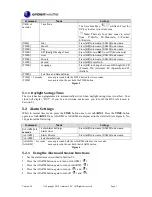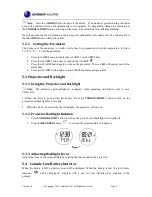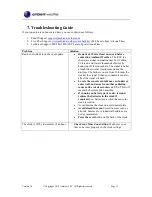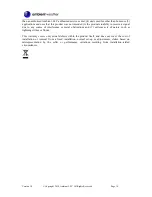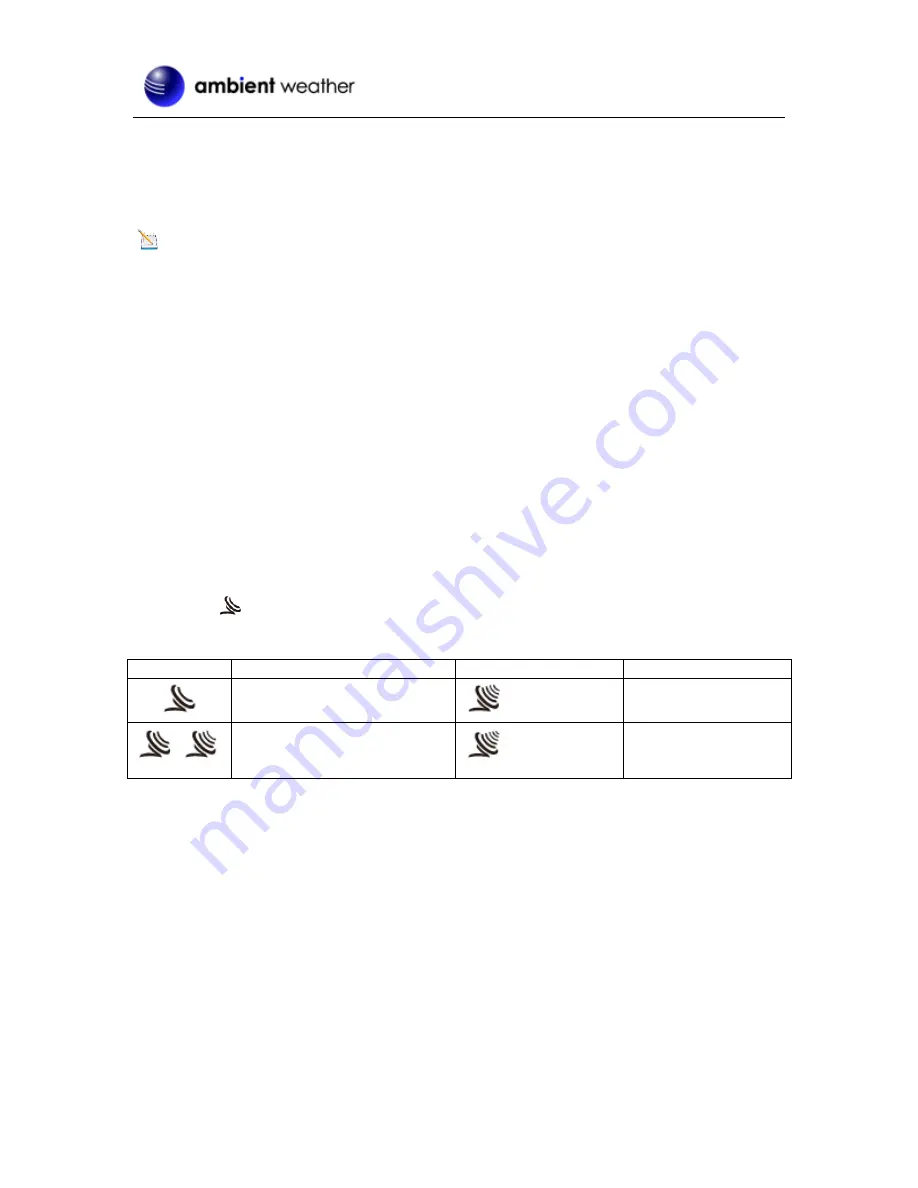
Version 1.0
©Copyright 2018, Ambient LLC. All Rights Reserved.
Page 5
reception typically only occurs in the night due to solar and other interference during the day).
The clock will automatically search for the time signal at 2:00, 8:00, 14:00 (2pm) and 20:00
(8pm).
5.
Once the wireless transmitter has synced up to the clock, you can place the sensor outside.
Note:
If no display is present after powering up the clock, press the reset button on the back of the
clock with an open ended paper clip or sharp tool.
3.3.1
Radio Controlled Clock (RCC)
3.3.1.1
Note about RCC
The radio controlled time may take several days to set and usually occurs at night when there is no
solar or other interference. If it does set, but the time is off by increments of 1, 2 or 3 hours, the time
zone was not set properly (Reference Section 5.1).
Be patient. Wait at least one week before contacting Ambient Weather. The RCC is a shortwave signal
originating near Fort Collins, Colorado, and travels thousands of miles by bouncing off the ionosphere.
The signal is better at night due to solar interference during the daytime. The farther you are from
Colorado, the weaker the signal. Urban environments can also affect the signal strength.
3.1.1.2
RCC Operation
Eight seconds after power up, the clock begin radio controlled clock (RCC) reception and the RCC
search icon
will turn on. The RCC will continue to search for six minutes. It will try again
every two hours.
RCC Icon
Description
RCC Icon
Description
No signal
Acceptable signal
Weak signal (flashes between
two icons). Cannot be
interpreted.
Excellent signal
Figure 3
If the time is incorrect by increments of an hour (time zone was not set properly), or does not change on
your radio controlled clock (RCC), please reference Section 7, Troubleshooting Guide.
3.2
Siting the Wireless Transmitter Outside
It is recommended you place the remote sensor in a shaded area.
Direct sunlight and radiant heat sources will result in inaccurate temperature readings. Although the
sensor is weatherproof, it is best to mount in a well-protected area, such as an eve. Do not place in
standing water or snow.
Wireless signals are impacted by distance, interference (other wireless devices, wireless phones,
wireless routers, TVs and computer monitors), and transmission barriers, such as walls. In general,
wireless signals will not penetrate solid metal and earth (down a hill, for example).







